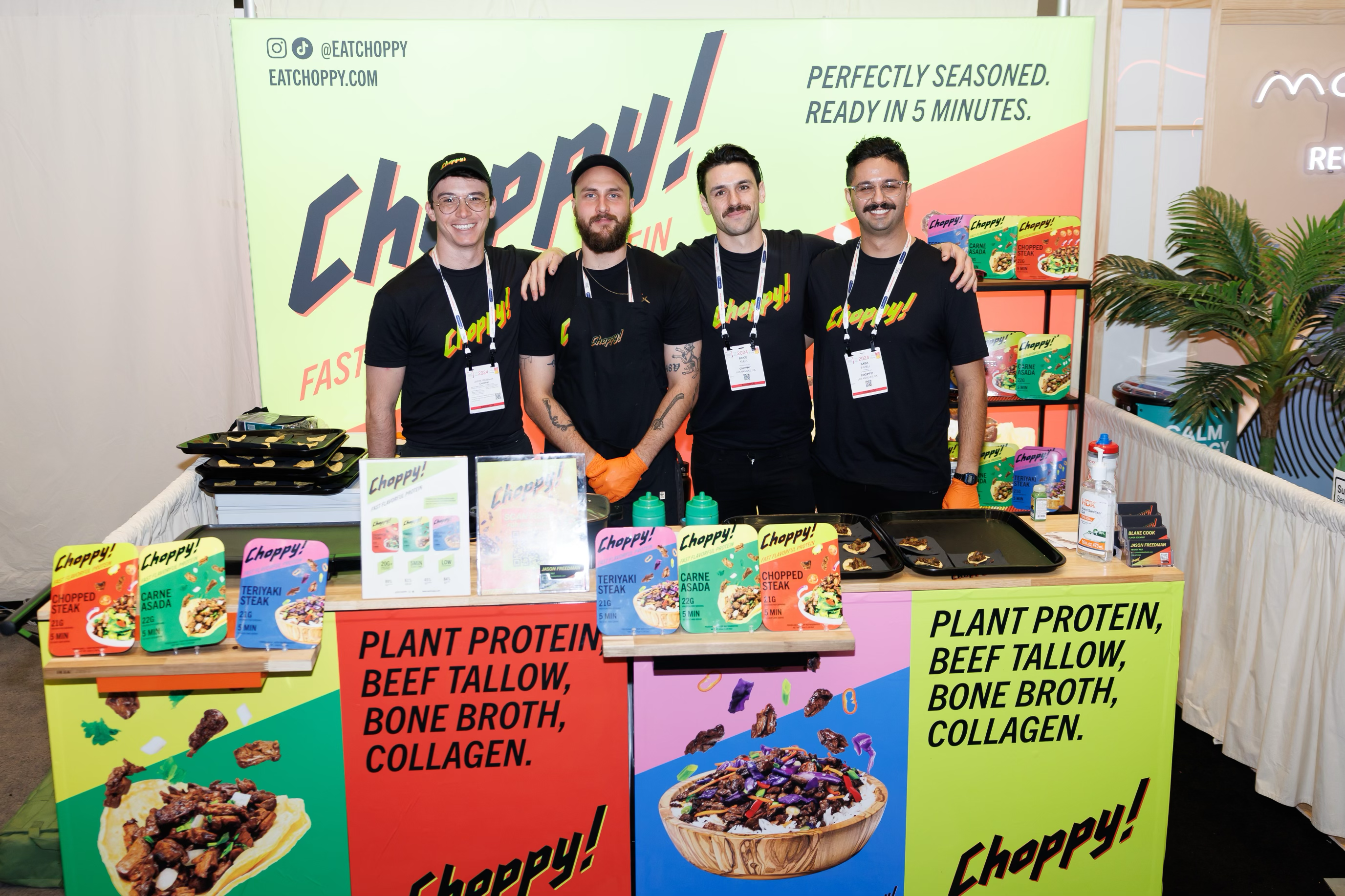A Q&A with Brice and Saba of Choppy!
Good food seems like such a simple premise, but much of the food we eat isn’t as nutrient-dense, good for the planet and good for our health as it should be. Many consumers today understand that food is medicine, and the way we fuel our bodies has tremendous implications for the health of humans, animals and the planet. But, not all of these healthy options are equally delicious, as well.
Choppy! makes food that tastes great, is made with real ingredients (i.e. plant protein, beef tallow, bone broth and collagen), and is centered on sustainability (i.e. lower emissions, energy, land and water used). The founders, Brice and Saba, met in college studying engineering and turned their passion for delicious, macro-nutrient packed protein into a CPG business. Their refrigerated meat substitute is perfect for tacos, salads and any meal that could use extra fast, flavorful protein!
We sat down with Brice and Saba in advance of their big summer launch – their products will be available in 175 Hy-Vee locations across the midwest next month! We get into the challenges facing CPG companies, what it takes to build a best-in-class brand, and what personally got them so motivated to build a sustainable food business.
Building a CPG company comes with its own set of challenges and complexities. What have been the biggest obstacles for you over the past few months?
Knowing what “truth” is. The further we’ve gotten into the CPG world, the more disparate the opinions. One person will swear Walmart is a great retailer to launch with. Another will say the opposite. Halo Top has been on podcasts swearing off exhibiting at trade shows. Another brand attributes all their success to displaying at these same trade shows.
This list of differing opinions extends from what retailers to partner with to what logistics companies to work with to what marketing strategies work best. Kevin’s Natural Foods, a brand that flies largely under the radar, started by selling sauced chicken cutlets and just sold to Mars for $810M. Conversely, there are many more brands with much more notoriety and yet much weaker sales.
Filtering through these contrarian opinions and actions to find the common truths and refine our own strategies has been a consistent challenge – especially while operating as quickly and efficiently as possible.
What has been the brand evolution of Choppy! and why has this been so important to the two of you?
The brand that is now ‘Choppy!’ first started as ‘Paul’s Table’, a brand named after Brice’s late father, and our original intent was to differentiate against futuristic sounding alt-meat companies like Beyond/Impossible/Simulate, or literally, Sci-Fi foods. By naming the brand after Brice’s dad, we intended to imbue a sense of trust with consumers.
As we refined our go-to-market strategy however, we realized we’re not competing against alternative meat companies. We’re on-shelf beside brands like Kevin’s Natural Foods, Jack Daniel’s Pulled Pork, and Jimmy Dean, and adding yet another brand named after a white man to the mix didn’t exactly scream differentiation.
With Choppy!, we built a brand that brings energy to the antiquated category that is prepared meat (and perhaps most importantly, it’s a name that’s easily said by children telling their parents what they want for dinner).
Can you share more about your personal passion for food and how sustainability plays a part?
We’d be lying if we said we’d always wanted to start a food company. What we have always wanted to do however, was make an impact – especially on climate. With four engineering degrees between us we saw a lot of ways to make money but few that actually mattered.
Through food, we saw an opportunity to put a dent in a massive climate contributor, and what we see as uniquely special about food is that it’s necessary. There are myriad ‘green’ products for which the greener solution would be to not buy them and just keep what you have working. But this isn’t an option with food – we have to eat it. And by creating more sustainable options, we can create the positive impact we always wanted without risk of overconsumption.
